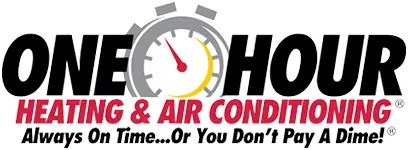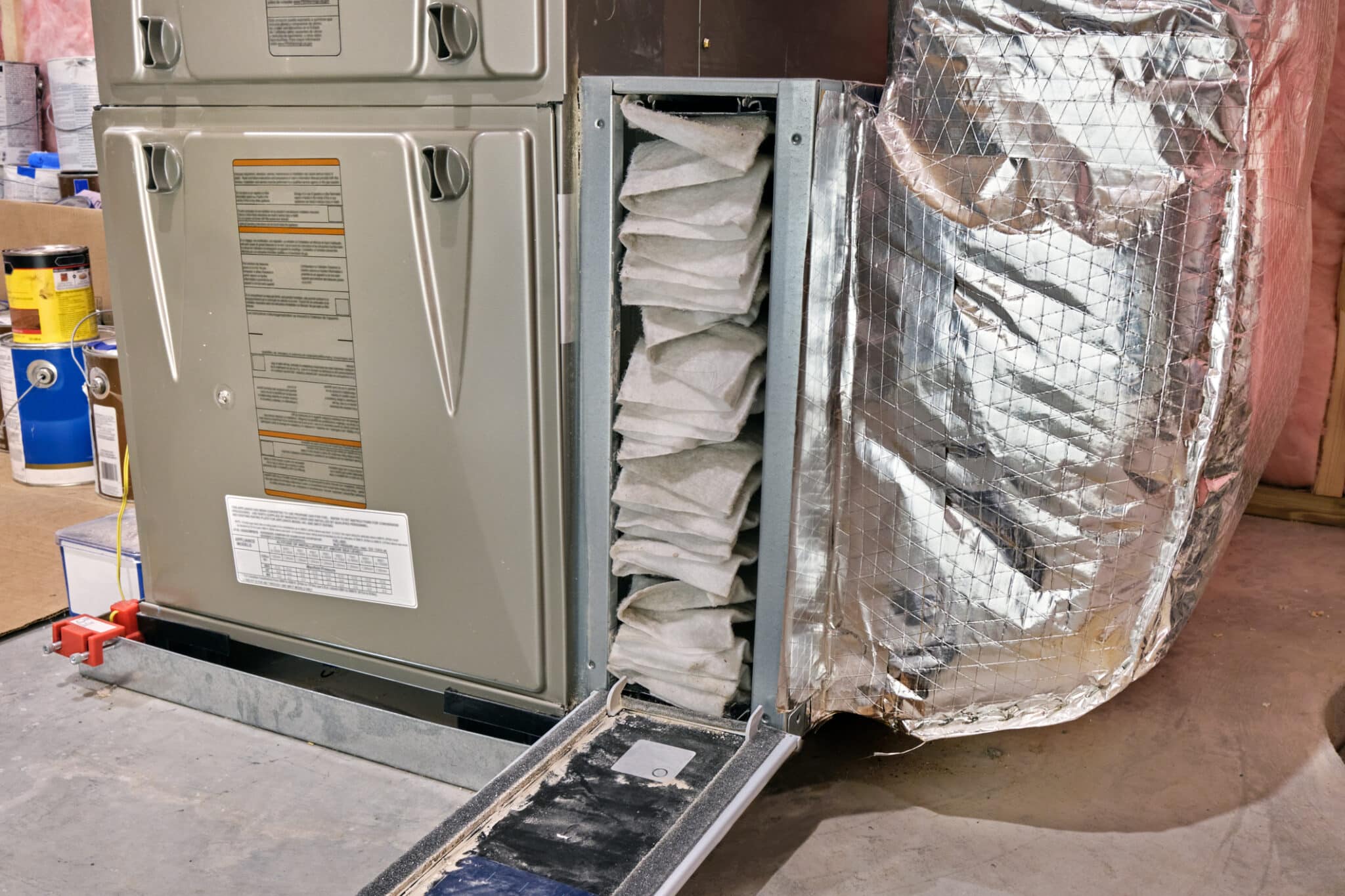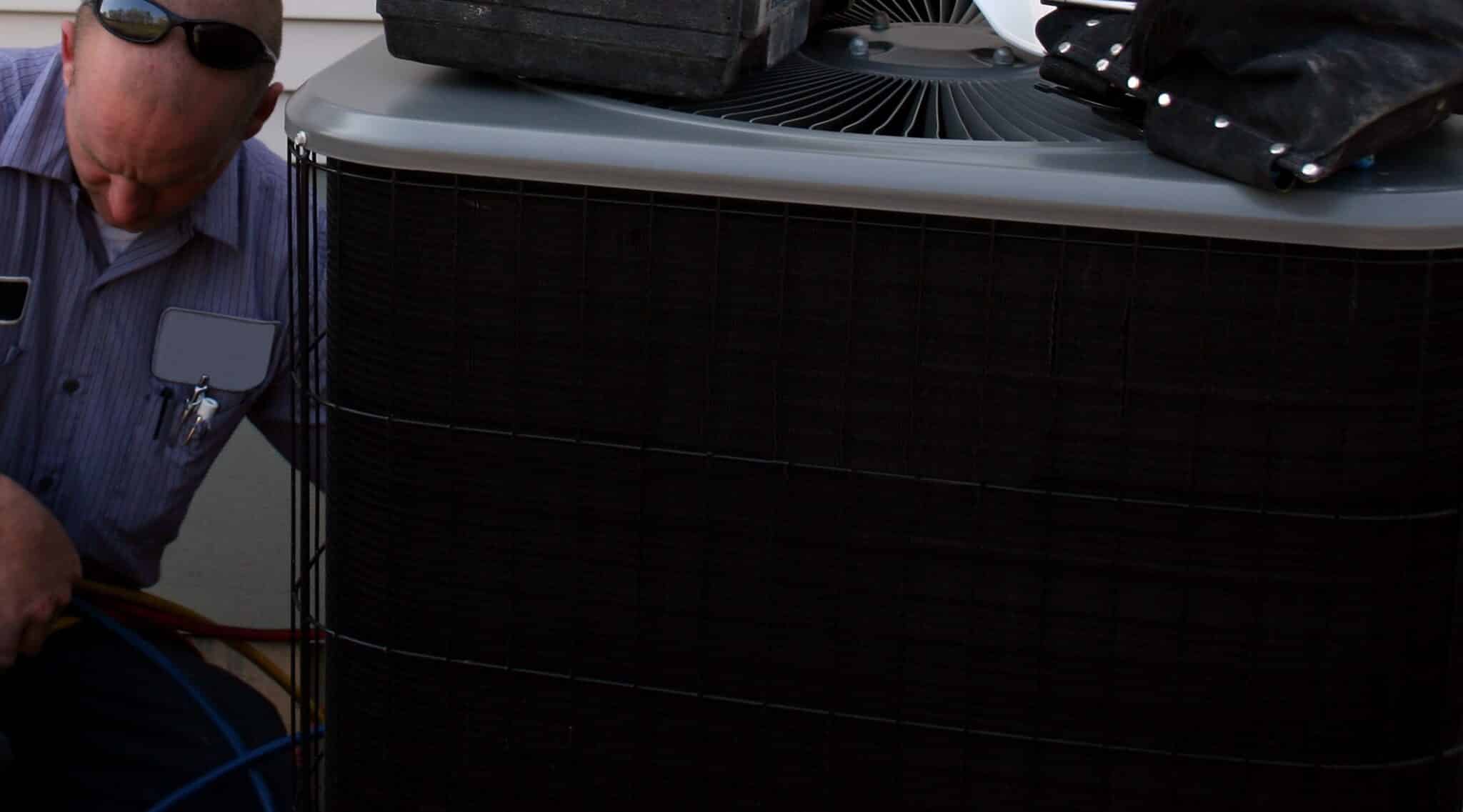- HVAC systems are crucial for year-round comfort in your Lancaster home.
- These systems control temperature, humidity, and air quality.
- Key components include the thermostat, furnace, air conditioner, ductwork, and heat pump.
- There are various types of HVAC systems, such as central air, split systems, heat pumps, and ductless mini-splits, each with unique benefits.
- Factors to consider when choosing an HVAC system include home size, energy efficiency, and climate.
- Proper system sizing and professional installation are essential for efficiency and longevity.
- Regular maintenance ensures optimal performance and lower energy costs.
Have you ever wondered what an HVAC system is and why it’s essential for your home? HVAC, which stands for Heating, Ventilation, and Air Conditioning, is the system that keeps your home comfortable year-round. Whether it’s the middle of winter or the height of summer, your HVAC system plays a crucial role in regulating the temperature, humidity, and air quality within your living spaces.
At its core, an HVAC system is designed to maintain indoor comfort by controlling the climate inside your home. It’s a system of interconnected components that work together to heat or cool the air and distribute it throughout your home. But it’s not just about temperature control.
A well-functioning HVAC system also improves indoor air quality by filtering out pollutants and maintaining proper humidity levels, ensuring that the air you breathe is clean and safe.
Key Components of an HVAC System
Understanding the basic components of an HVAC system can help you appreciate how it works and why each part is important. Here are the key components:
- Thermostat: The thermostat is the control center of your HVAC system. It allows you to set your desired temperature and automatically adjusts the heating or cooling as needed.
- Furnace: The furnace is the primary source of heating in most HVAC systems. It heats air, which is then distributed throughout your home via ductwork.
- Air Conditioner: The air conditioner cools the air in your home by removing heat and moisture, creating a comfortable indoor environment during the warmer months.
- Ductwork: Ducts are the channels through which heated or cooled air travels from your HVAC system to various rooms in your home.
- Ventilation System: Ventilation involves exchanging indoor air with outdoor air to remove contaminants, control humidity, and bring in fresh air.
- Heat Pump: A versatile component, the heat pump can both heat and cool your home by transferring heat from one place to another.
- Air Handler: This component circulates the air through the ducts and ensures that conditioned air reaches every part of your home.
- Evaporator Coil and Condenser Coil: These coils work together to remove heat from the air and cool your home. The evaporator coil absorbs heat from inside your home, while the condenser coil releases it outside.
Each of these components plays a vital role in keeping your home’s environment comfortable and healthy. A well-maintained HVAC system ensures that all these parts work together efficiently, leading to better performance, lower energy bills, and a longer lifespan for your system.
Types of HVAC Systems for Your Lancaster Home
When choosing an HVAC system for your Lancaster home, it’s essential to understand the different types available. Each system has unique features that cater to specific needs, so knowing what options exist can help you make an informed decision.
Central Air Systems
Central air systems are the most common type of HVAC system, especially in larger homes. These systems consist of a single unit that cools or heats the air in a centralized location and then distributes it throughout the home via ductwork.
Advantages:
- Uniform Temperature: Central air systems offer consistent temperature control across all rooms.
- Quiet Operation: The main unit is typically installed outside, which minimizes indoor noise.
- Improved Air Quality: Many central systems include advanced filtration options that help reduce indoor pollutants.
Disadvantages:
- Higher Installation Costs: The complexity of ductwork installation can lead to higher upfront costs.
- Space Requirements: These systems require sufficient space for ductwork, which might be challenging in older or smaller homes.
Split Systems
Split systems are a variation of central air systems but are more flexible in their design. They consist of an outdoor unit and one or more indoor units, making them suitable for homes without existing ductwork.
Advantages:
- Flexibility: Split systems are easier to install in homes without ductwork.
- Zone Control: They allow for independent temperature control in different rooms or areas.
- Energy Efficiency: By only heating or cooling specific zones, split systems can reduce energy consumption.
Disadvantages:
- Initial Cost: Though less invasive than central systems, split systems can still be costly to install.
- Maintenance: With multiple indoor units, maintenance might be more frequent.
Heat Pumps
Heat pumps are an efficient alternative to traditional HVAC systems, capable of both heating and cooling. They work by transferring heat rather than generating it, making them more energy-efficient.
Advantages:
- Energy Efficiency: Heat pumps are highly efficient, particularly in moderate climates.
- Versatility: They provide both heating and cooling, making them a one-stop solution for climate control.
- Environmental Impact: Since they transfer heat rather than burn fuel, heat pumps have a smaller carbon footprint.
Disadvantages:
- Performance in Extreme Cold: In regions with very cold winters, heat pumps may require a backup heating source.
- Initial Investment: Heat pumps can be more expensive upfront compared to other systems.
Ductless Mini-Split Systems
Ductless mini-split systems are ideal for homes where ductwork isn’t feasible. These systems consist of an outdoor unit connected to one or more indoor units, delivering heating and cooling directly to specific rooms.
Advantages:
- No Ductwork Required: Perfect for older homes or additions where installing ducts is impractical.
- Individual Room Control: Each indoor unit operates independently, allowing for customized comfort in different rooms.
- Energy Efficiency: Like split systems, they can reduce energy waste by targeting only the areas in use.
Disadvantages:
- Cost: The cost per unit can add up, especially if multiple units are needed.
- Aesthetic Impact: Indoor units are visible on the wall, which might not suit every homeowner’s taste.
Each of these systems offers distinct benefits that can match various home designs and comfort needs. Understanding these options can guide you toward the best choice for your Lancaster home.
Factors to Consider When Choosing an HVAC System
Selecting the right HVAC system for your Lancaster home involves more than just picking the latest model. Several key factors must be considered to ensure you choose a system that meets your home’s needs, fits your budget, and operates efficiently.
Home Size and Layout
One of the most crucial factors in selecting an HVAC system is your home’s size and layout. The square footage, number of rooms, ceiling height, and layout of your home all play a role in determining the type and size of the system you need.
- Larger Homes: Typically require more powerful systems, such as central air or multiple split systems, to ensure even temperature distribution.
- Smaller Homes: Might benefit from ductless mini-splits or smaller heat pumps that offer flexibility without the need for extensive ductwork.
Energy Efficiency (SEER Ratings)
Energy efficiency is another vital consideration. The Seasonal Energy Efficiency Ratio (SEER) rating measures an air conditioner’s efficiency—the higher the SEER rating, the more energy-efficient the system.
- Higher SEER Ratings: Systems with higher SEER ratings may have a higher upfront cost but lead to significant savings on energy bills over time.
- Moderate SEER Ratings: While they might be more affordable initially, systems with lower SEER ratings could lead to higher operational costs, especially during peak seasons.
Climate Considerations in Lancaster, PA
Lancaster’s climate, with its cold winters and warm, humid summers, demands an HVAC system that can handle both extremes. Understanding how local weather impacts HVAC performance is essential.
- Winter Needs: Ensure your system has robust heating capabilities. Heat pumps with a backup heating source, or high-efficiency furnaces, are ideal.
- Summer Needs: An efficient cooling system is necessary to maintain comfort during hot, humid months. Systems with dehumidification capabilities can help manage indoor humidity levels.
Noise Levels
HVAC systems can generate noise that might disrupt your home environment. When choosing a system, consider how much noise you’re willing to tolerate.
- Quieter Systems: Look for systems designed with noise reduction features, such as insulated compressors or quiet-mode options, to ensure minimal disruption.
- Location of Installation: Installing the outdoor unit away from bedrooms or living areas can help reduce noise impact.
Indoor Air Quality
Indoor air quality is increasingly important, especially for those with allergies or respiratory issues. Your HVAC system plays a significant role in maintaining clean and healthy indoor air.
- Air Filtration: Systems with advanced filtration options can help remove dust, pollen, and other allergens from the air.
- Humidity Control: Proper humidity levels prevent mold growth and maintain comfort. Systems with built-in humidifiers or dehumidifiers can enhance air quality.
Considering these factors can help you choose an HVAC system that meets your home’s specific needs, ensures comfort, and operates efficiently, keeping your energy bills manageable.
The Importance of Proper Sizing
Choosing the right size for your HVAC system is crucial for maintaining comfort, efficiency, and the longevity of the system. An improperly sized system can lead to a range of issues, from uncomfortable temperature variations to increased energy bills. Understanding how to determine the correct size and the risks associated with incorrect sizing is essential for any homeowner.
How to Determine the Right Size HVAC System
Determining the correct size of your HVAC system involves more than just considering the square footage of your home. It’s a process that takes into account various factors:
- Home Size and Layout: The total square footage is the starting point, but the layout, including the number of floors and rooms, also influences the size needed.
- Insulation Levels: Proper insulation reduces the demand on your HVAC system. A well-insulated home might require a smaller system compared to a poorly insulated one.
- Climate: In Lancaster, PA, the climate plays a significant role. Cold winters and humid summers require a system that can efficiently handle both heating and cooling.
- Window Size and Type: Large or poorly insulated windows can lead to heat loss in winter and heat gain in summer, affecting the load on your HVAC system.
- Occupancy: The number of people living in your home also impacts the system size, as more occupants generate more heat and moisture.
HVAC professionals use a method called the Manual J calculation to determine the precise size needed. This calculation considers all these factors and more, ensuring that the system you choose is neither too big nor too small.
Risks of Over- or Undersized Systems
Choosing an HVAC system that’s too large or too small can lead to several issues:
- Short Cycling: An oversized system will heat or cool your home too quickly, leading to frequent on/off cycles. This process, known as short cycling, can cause excessive wear and tear on the system, reducing its lifespan and increasing maintenance costs.
- Inconsistent Temperatures: An undersized system may struggle to reach the desired temperature, especially during extreme weather, leading to uneven heating or cooling across your home.
- Increased Energy Bills: Both oversized and undersized systems can lead to higher energy bills. An oversized system consumes more energy due to short cycling, while an undersized one runs continuously, trying to meet demand.
- Reduced Comfort: An improperly sized system may fail to maintain the desired comfort level in your home, leading to hot and cold spots, poor humidity control, and an overall less comfortable living environment.
- Impact on Indoor Air Quality: An oversized system might not run long enough to effectively filter the air, while an undersized one could struggle to maintain proper humidity levels, leading to potential issues with mold and allergens.
Ensuring your HVAC system is correctly sized is key to maximizing efficiency, reducing energy costs, and maintaining a comfortable and healthy indoor environment. Always consult with a professional HVAC contractor to perform a proper load calculation and guide you in selecting the right system for your home.
Installation Considerations
Once you’ve selected the right HVAC system for your Lancaster home, the next critical step is installation. Proper installation ensures your system operates efficiently, safely, and for as long as possible. Whether you’re considering a DIY approach or hiring a professional, there are several factors to keep in mind.
Professional Installation: What to Expect
Hiring a professional HVAC contractor is often the best choice for installing your new system. A professional installation comes with several benefits that can save you time, money, and stress in the long run.
- Expert Assessment: A professional will start with a thorough assessment of your home, including evaluating ductwork, electrical systems, and ventilation. This ensures that the installation is tailored to your specific needs.
- Proper Sizing: A qualified installer will confirm that the HVAC system chosen is the correct size for your home, avoiding the risks associated with over- or undersizing.
- Compliance with Local Codes: HVAC professionals ensure that your installation meets all local building codes and regulations in Lancaster, PA, which is crucial for safety and legality.
- Warranty Protection: Many HVAC systems come with manufacturer warranties that require professional installation to remain valid. DIY installation could void these warranties, leaving you unprotected in case of a malfunction.
- Testing and Calibration: After installation, a professional will test the system to ensure it operates correctly and efficiently. This includes calibrating the thermostat and checking airflow to all rooms.
DIY vs. Professional Installation: Pros and Cons
While hiring a professional is generally recommended, some homeowners consider a DIY approach. Here are the pros and cons of each option:
- DIY Installation:
- Pros:
- Cost Savings: DIY installation can save money on labor costs.
- Flexibility: You can work on your schedule without waiting for a contractor.
- Cons:
- Complexity: HVAC systems are complex, and improper installation can lead to performance issues or even safety hazards.
- No Warranty: DIY installation might void the manufacturer’s warranty.
- Legal and Code Issues: You may run into problems with local building codes or need permits, which can be complicated without professional help.
- Pros:
- Professional Installation:
- Pros:
- Expertise: Professionals bring knowledge and experience, ensuring the job is done right.
- Efficiency: Professionals can complete the installation quickly and correctly, reducing downtime.
- Peace of Mind: Knowing that your system is installed correctly and safely by a professional provides peace of mind.
- Cons:
- Cost: Professional installation can be more expensive upfront due to labor costs.
- Scheduling: You’ll need to coordinate with the contractor’s schedule, which may cause delays.
- Pros:
While the initial cost may seem high, investing in professional installation can prevent future problems and ensure your system operates efficiently, ultimately saving you money over time.
Frequently Asked Questions
-
What Size HVAC System Do I Need for My Home?
The size of your HVAC system should be determined by a professional using a load calculation method like Manual J. This process considers factors such as your home’s square footage, insulation levels, window types, and the local climate in Lancaster, PA. A properly sized system ensures efficient operation, consistent comfort, and lower energy bills.
-
How Often Should I Replace My HVAC System?
On average, HVAC systems last between 15 to 20 years. However, you should consider replacement sooner if your system frequently needs repairs, your energy bills are rising, or the system no longer keeps your home comfortable. Advances in energy efficiency also mean that newer systems can offer significant savings over older models.
-
What Are the Best HVAC Systems for Energy Efficiency?
The best HVAC systems for energy efficiency typically have high SEER (Seasonal Energy Efficiency Ratio) ratings for cooling and high AFUE (Annual Fuel Utilization Efficiency) ratings for heating. Heat pumps are also highly efficient, especially in moderate climates. Look for systems with ENERGY STAR certification, which indicates they meet strict energy efficiency guidelines set by the U.S. Environmental Protection Agency.
-
Can I Install an HVAC System Myself?
While it’s possible to install an HVAC system yourself, it’s generally not recommended. HVAC systems are complex, and improper installation can lead to safety hazards, inefficiency, and costly repairs. Additionally, DIY installation might void the manufacturer’s warranty and fail to meet local building codes. Hiring a professional ensures that the job is done correctly and safely.
-
What Are the Benefits of Regular HVAC Maintenance?
Regular HVAC maintenance helps ensure your system operates efficiently and lasts longer. Benefits include reduced energy bills, fewer breakdowns, and improved indoor air quality. Maintenance tasks typically include changing filters, cleaning coils, and checking for any potential issues. Many homeowners in Lancaster opt for a maintenance plan, which includes scheduled inspections and discounts on repairs.







